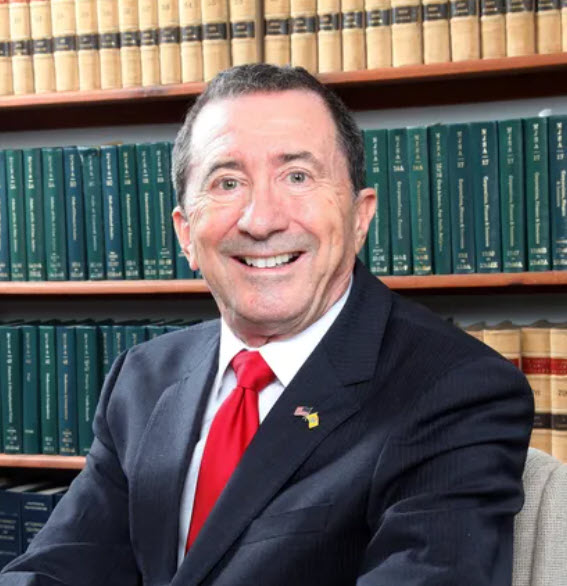David Barton published The Jefferson Lies in 2012. It makes persuasive arguments that much of what we think we know about Thomas Jefferson is false. According to Barton:
Thomas Jefferson did not and could not have fathered children with his slave, Sally Hemmings.
Thomas Jefferson significantly changed the laws and culture of his day to begin the process of ending slavery in America. That is why so many prominent Black Americans and opponents of slavery in his day respected, praised, and admired Thomas Jefferson.
Thomas Jefferson was not an atheist. He supported Christians and Bible study throughout his live. Jefferson established the University of Virginia as a school to teach Christian values.
Thomas Jefferson wanted government officials to understand and apply Christian values. To Jefferson, “separation of church and state” meant that government officials should not control churches, their ministers or their doctrines.
David Barton supports each of his arguments with abundant writings of Thomas Jefferson and those who lived and worked with him. These writings are preserved by the Library of Congress, the University of Virginia and many other institutions. They are easily available to any student or scholar who wants to read them.
When Barton published the hardcover edition of his book in 2012, he and his book were immediately attacked and ridiculed by many establishment historians for being inaccurate and misleading.
However, those attacks dealt with a handful of minor errors. Barton explained and corrected those errors in a second paperback edition published in 2016.
In that new edition, Barton acknowledged and thanked his critics, saying “’As iron sharpens iron, so one man sharpens another’ (Proverbs 27:17). Indeed, whenever I received word of a possible inaccuracy in any of my works, I make the necessary corrections in subsequent printings. This has been my established practice for twenty-five years”.
David Barton not only corrected those four big lies about Thomas Jefferson, he also explained why so many Americans believe them.
Barton described six “malpractices” in the study and teaching of history in America today. Barton he then explained how this gives us “bad policies” in government as well as “horrible damage to history”.
Comedian Bill Maher also described many of them in his “Unified Theory Of ‘Wokeness'”:
-
Negativism: Tear down and demean traditional heroes, values, and institutions. Systematically present the negative as if it were the whole story.
-
Relativism: Reject absolutes and transcendent principles in history, religion, culture, and law. Teach students that all forms of governments are good; all religions are profitable; all economic systems are workable, and that values are merely personal preferences. Since everyone should interpret events for themselves, subjective feelings prevail over objectivity, truth, and facts.
-
Anti-Nationalism: Reject traditional national unifying values and institutions. Encourage loyalty to groups that are larger or smaller than the nation, such as a global order or one’s own racial, religious or ethnic sub-group. Weaken respect for those things that make our nation unique and distinctive such as our Constitution, traditions of individual liberty, Judeo-Christian values. . . and national heroes such as Thomas Jefferson
-
Modernism (Also called “Presentism”): Examine historical persons and events as if they happened today. This separates history from its context and produces flawed conclusions.
-
Minimalism: Reduce complicated situations and personalities to simplistic characterizations. While minimalism can miss the major point through oversimplification, it can also happen from overcomplication—that is not seeing the forest for the trees. Some academics fixate on the minor and minutia to the exclusion major developments.
-
Rigid Secularism: Completely ignore or misportray religious influences, motivations and persons. This can occur through deliberate omission or by the selective presentation of facts. For example, many who write on religion and the Founders focus on the few whose religious views and practices were not as clearly orthodox as most of the Founders.
Barton’s book suggests these remedies:
- Negativism: When a negative historical story is presented, check and see if there are other views or accounts—or if positive aspects were omitted from the account. It is easy to point out negatives of the Puritans in early Massachusetts such as the 27 innocent victims of the Salem witch trials. However, it is important to also mention that at the same time, roughly 30,000 innocents were executed in England, 75,000 in France, and 100,000 in Germany. The Puritans quickly saw the injustice and changed their culture, laws, and institutions.
- Relativism: The remedy is to always to look for absolutely established, irrefutable facts about the subject.
- Anti-Nationalism: Begin by acknowledging that America actually is unique. Our prosperity, freedom, and stability did not occur by accident. They were the consequence of both our ancestors’ commitment to certain ideas and values, and God’s Providence. Many of those ideas are brilliantly summarized in the 155 words drafted by Thomas Jefferson at the beginning of our Declaration of Independence. That includes the national belief that: (1) There is a Creator; (2) the Creator endows each individual with ‘certain unalienable rights’; (3) government exists primarily to secure these rights; (4) there is a fixed and absolute moral law (“the laws of nature and of nature’s God”); j(5) below the level of unalienable rights and rfixed moral law, decisions are made by the majority; and (6) if government does not secure these previous five elements, the people have a right to change their government.
- Modernism: The remedy is to develop a broad general knowledge of the past, not just the present. . . If rudimentary historical literacy is to be achieved today, it must be individually secured. It is no longer possible to rely on public schools (and even many private schools) for this once elementary knowledge. Federal laws, such as No Child Left Behind and Race to the Top as well as comparable state laws require student accountability testing in schools. However, that testing typically covers only reading, math and science—not history. Because test results are connected to funding, many schools instruct their teachers to focus on teaching the subject matter to be covered in the testing. . . In the past, students studied American history in every grade K-12. Today, however, many states now require American history to be taught in only three grades. Also, the presentation of American history today is too often reduced to a succession of often sterile facts, dates and places, interspersed with outlandishly negative criticisms of men and women who were greatly admired and respected in the past.
- Minimalism: Address it by establishing context. Begin with the assumption that things are usually not as simple as they seem. Always look for the context of what is being said; don’t separate something from its historical setting. Thus when critics lift a single line from a letter—such as Jefferson’s “wall of separation between church and state” metaphor, then go back and read the whole letter—and who and what it was responding to.
- Rigid Secularism: The solution is to recognize that religious faith has always had a tremendous influence on both individuals and events in American history.
LibertyAndProsperity.com is a tax-exempt, non-political education organization of roughly 200 citizens who mostly live near Atlantic City, New Jersey. We formed this group in 2003. We volunteer our time and money to maintain this website. We do our best to post accurate information. However, we admit we make mistakes from time to time. If you see any mistakes or inaccurate, misleading, outdated, or incomplete information in this or any of our posts, please let us know. We will do our best to correct the problem as soon as possible. Please email us at info@libertyandprosperity.com or telephone (609) 927-7333.
If you agree with this post, please share it now on Facebook or Twitter by clicking the “share” icons above and below each post. Please copy and paste a short paragraph as a “teaser” when you re-post.
Also, because Facebook, YouTube and other social media often falsely claim our posts violate their “community standards”, they greatly restrict, “throttle back” or “shadow ban” our posts. Please help us overcome that by sharing our posts wherever you can, as often as you can. Please copy and paste the URL link above or from the Twitter share button to the “comments” section of your favorite sites like Patch.com or PressofAtlanticCity.com. Please also email it to your friends. Open and use an alternate social media site like Gab.com.
Finally, please subscribe to our weekly email updates. Enter your email address, name, city and state in the spaces near the top of our home page at Homepage – Liberty and Prosperity. Then click the red “subscribe” button. Or email me at sethgrossman@libertyandprosperity.com or address below. Thanks.
Seth Grossman, Executive Director
LibertyAndProsperity.com
info@libertyandprosperity.com
(609) 927-7333


